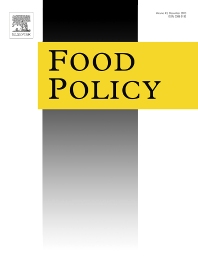Last updated on November 19, 2014
My recent article (gated; email me if you’d like a copy) with Nick Carnes is now available on ScienceDirect and will be published in the January 2015 issue of Food Policy. Here is the abstract:
It seems paradoxical that until recently, developed countries have continued subsidizing agriculture even though their agricultural sectors had been declining in relative importance since the middle of the 20th century. What drives support for agricultural protection—the broad array of subsidies to farmers and taxes and quotas imposed on agricultural imports—in developed countries? We answer this question by testing three competing hypotheses about what drives support for agricultural protection in the US: (i) legislator preferences, (ii) electoral incentives, or (iii) lobbying. Using data on the roll call votes of the members of the 106th through the 110th Congresses (1999–2009) and the scores given to each legislator by the Farm Bureau, our findings suggest that electoral incentives explain a great deal of the variation in support for agricultural protection, but that legislator preferences and lobbying might play a role, too. Moreover, legislator preferences and electoral incentives appear to be substitutes for one another. Why does Congress support agricultural protection? Because many members have electoral incentives to—and because many of those who do not still have other personal or strategic interests at stake.
